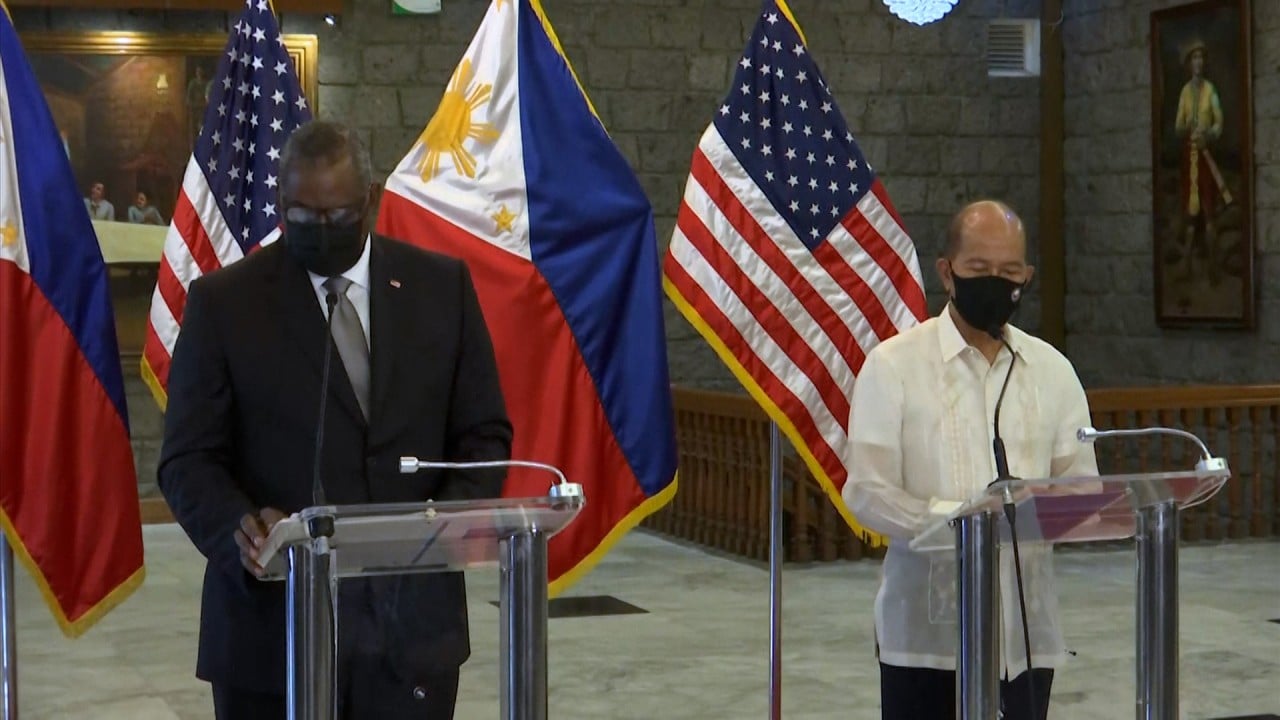
How Philippine leader’s U-turn over US forces helps keep up the pressure on China
- Rodrigo Duterte’s decision to keep the Visiting Forces Agreement helps the US retain a strong presence close to Taiwan and the South China Sea
- Chinese observers say Washington may increase the military aid it gives its ally following the decision
The agreement, which came into effect in 1999, provides a simplified legal framework allowing US troops in the Philippines to take part in drills or joint exercises. It also allows the US to retain custody over personnel accused of committing crimes in the host country.
It was designed to reinforce the two countries’ Mutual Defence Treaty to support each other if they come under attack.

00:55
Philippines reverses decision to end military troop pact with US
Analysts said the US was likely to provide more military aid to its ally following the decision and added that the decision to retain the agreement was likely to concern Beijing by helping it maintain a strong presence close to major flashpoints.
“Philippine military bases are pivotal to the US attempt to control the first island chain,” said Chen Xiangmiao, a research fellow with China’s National Institute for South China Sea Studies.
The US strategy is to use the first island chain – a network of archipelagos stretching from Japan to the Malay Peninsula – to cut the Chinese navy’s access to the western Pacific.
The Enhanced Defence Cooperation Agreement also allows it use five military bases in the Philippines, and Chen said it would seek to “substantively expand” those bases, which are at the core of its presence throughout Southeast Asia.
“The military alliance between the United States and the Philippines was affected during the [Donald] Trump era, and [Joe] Biden is trying to repair it now,” he said.
“I think the US will also give military aid to the Philippines and help the Philippine navy to boost its capabilities.”
Zhang Xiangjun, an specialist in the law of the sea from Fuzhou University, said even though the stronger US presence in the first island chain was not a major deterrent for China, the resumption of the agreement helped reinforce the US containment strategy.

“By doing this, the US is also preparing to deal with the Taiwan issue. If Beijing moves to unify Taiwan province by force in the future, the US can better coordinate its forces in the region to impede China’s move, given that the Philippines are close to Taiwan,” she said.
Beijing regards Taiwan as a breakaway province and has never renounced the use of force to reunite it with the Chinese mainland.
“A large part of the import and export trade of Japan, South Korea and other [US] allies goes through the South China Sea. The United States has security treaty obligations to these regional allies. If the South China Sea is completely under China’s power, the United States will not accept it,” Zhang continued.
“Conservatives in the Philippines are dissatisfied with Duterte’s concessions to China in the South China Sea, so he and his daughter need to show a tough stance towards China in order to win the election,” Song said, referring to the president’s decision to disregard an international ruling against Beijing’s claims.
He added that if Duterte’s daughter came to power, ties between China and Philippines would be likely to remain stable.
Additional reporting by Laura Zhou and Kristin Huang

